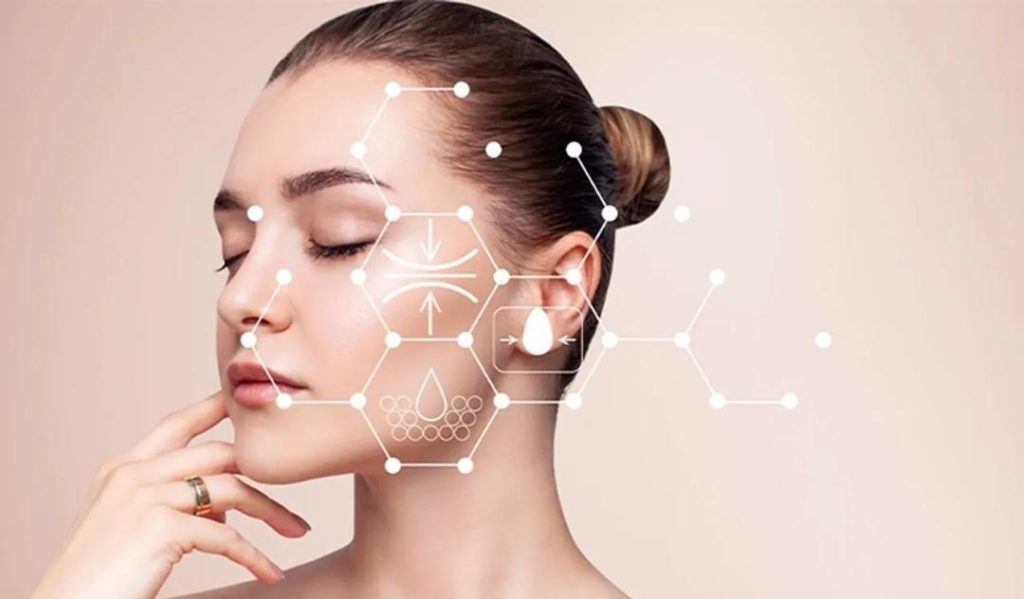
How AI & Innovation are Redefining the Beauty and Wellness Landscape
The skincare industry has undergone a transformative journey, shifting from basic routines to a realm of personalized solutions, inclusivity, and cutting-edge innovation. As we glance ahead to 2025, skincare trends reflect a deeper understanding of diverse skin needs, a commitment to wellness, and a harmony between science and nature.
The Rise of Personalization
In recent years, personalized skincare has become the buzzword in the industry. With the help of artificial intelligence (AI) and machine learning, skincare brands are now able to offer customized solutions that cater to individual skin types, concerns, and goals. This shift towards personalization has led to a significant increase in consumer satisfaction, as people are no longer forced to follow one-size-fits-all routines.
AI-powered skincare platforms, such as SkinType, use advanced algorithms to analyze user input, skin data, and product recommendations to provide tailored advice and product suggestions. Similarly, skincare apps like Neutrogena’s Skin360 use AI-driven technology to offer personalized skincare routines, product recommendations, and even virtual dermatologist consultations.
The benefits of personalization are numerous. For one, it allows consumers to bypass the trial-and-error approach, which can be time-consuming and frustrating. Additionally, personalized skincare products and routines are more effective in addressing specific skin concerns, leading to better results and a higher sense of satisfaction.
Inclusivity and Diversity
The beauty and wellness industry has long been criticized for its lack of inclusivity, with a focus on catering to a narrow definition of beauty. However, recent trends indicate a shift towards greater diversity and representation.
Skincare brands are now recognizing the importance of inclusivity, launching products and campaigns that cater to a broader range of skin tones, types, and concerns. For example, brands like Fenty and Rihanna’s Fenty Skin have disrupted the industry with their inclusive product lines, offering shades and formulas that cater to a diverse range of skin tones and types.
The rise of “skin positivity” has also contributed to a more inclusive beauty landscape. Skin positivity promotes self-acceptance and self-love, encouraging individuals to celebrate their unique skin characteristics, rather than striving for an unattainable beauty standard.
Cutting-Edge Innovation
The beauty and wellness industry is also witnessing a surge in cutting-edge innovation, with a focus on technology, sustainability, and efficacy. Some of the most exciting trends include:
- At-home devices: At-home devices, such as microneedling tools and LED masks, are revolutionizing the way we approach skincare. These devices offer precise, targeted treatments that can be used in the comfort of one’s own home.
- Nanotechnology: Nanotechnology is being used to develop innovative skincare products that can penetrate deeper into the skin, delivering more effective results. For example, nanotechnology-based products can help to reduce the appearance of fine lines and wrinkles.
- Biotechnology: Biotechnology is being used to develop skincare products that harness the power of living cells. For example, products containing live bacteria, such as probiotics, are being used to promote healthy skin and reduce inflammation.
- Sustainability: The beauty industry is under pressure to become more sustainable, with a focus on eco-friendly packaging, refillable products, and minimal waste. Brands like Lush and The Ordinary are leading the charge, offering a range of sustainable products and practices.
The Future of Skincare
As we look ahead to 2025, it’s clear that the skincare industry will continue to evolve, driven by advancements in AI, innovation, and a commitment to inclusivity and sustainability.
Skincare trends will continue to prioritize personalization, with AI-powered platforms and apps offering tailored advice and product recommendations. The industry will also continue to shift towards greater inclusivity, with brands recognizing the importance of catering to a diverse range of skin tones, types, and concerns.
Innovation will also continue to play a significant role, with a focus on cutting-edge technology, sustainable packaging, and eco-friendly practices. Brands will need to prioritize transparency, using natural ingredients, and reducing waste to appeal to environmentally conscious consumers.
As we navigate the future of skincare, it’s clear that the industry will continue to evolve, driven by a commitment to innovation, inclusivity, and sustainability. Whether you’re a skincare enthusiast or just starting your journey, the future of skincare is looking brighter than ever.
Source: https://www.shethepeople.tv/author-spotlight/guest-contributions/skincare-trends-for-2025-8728129






